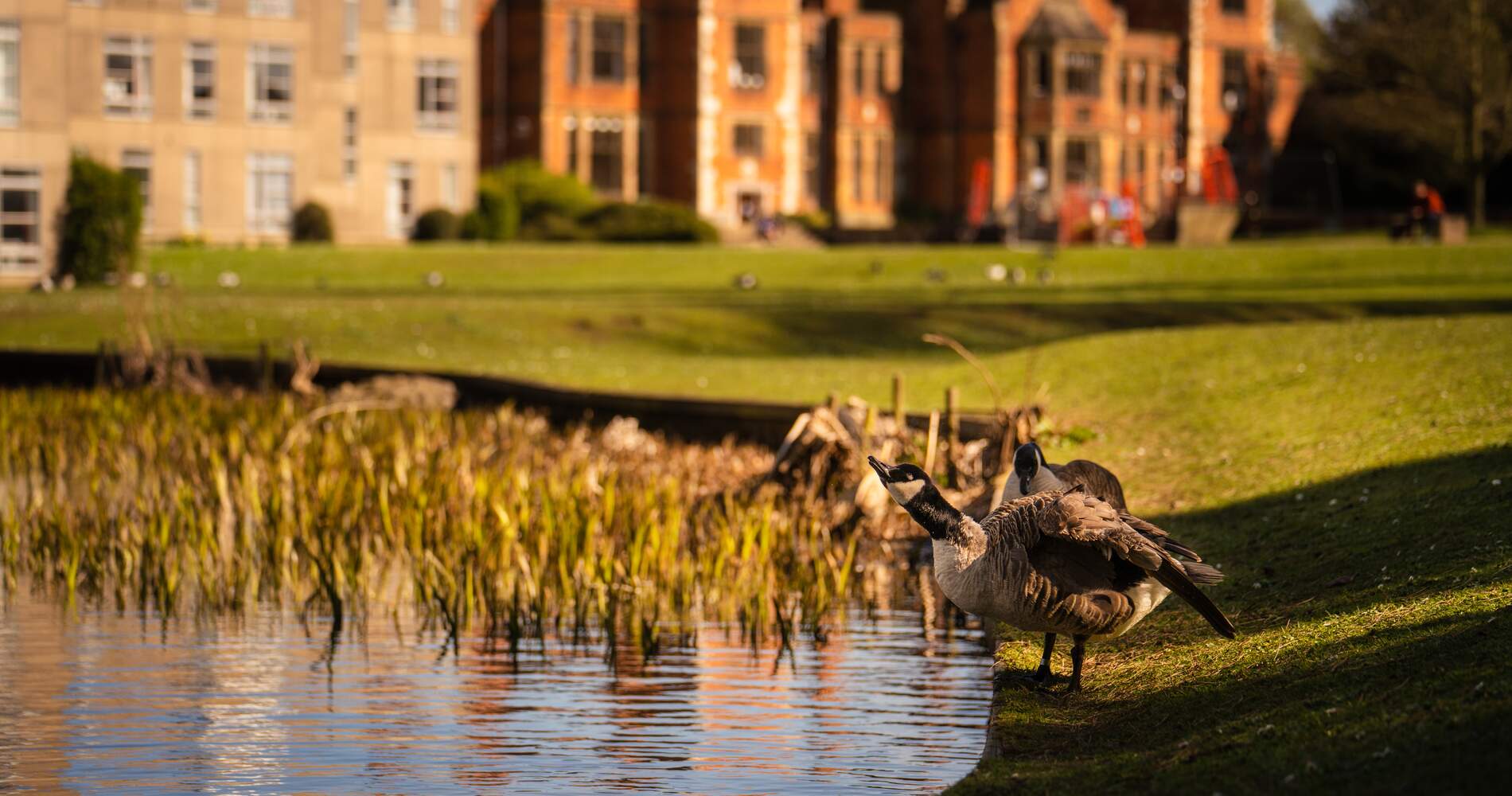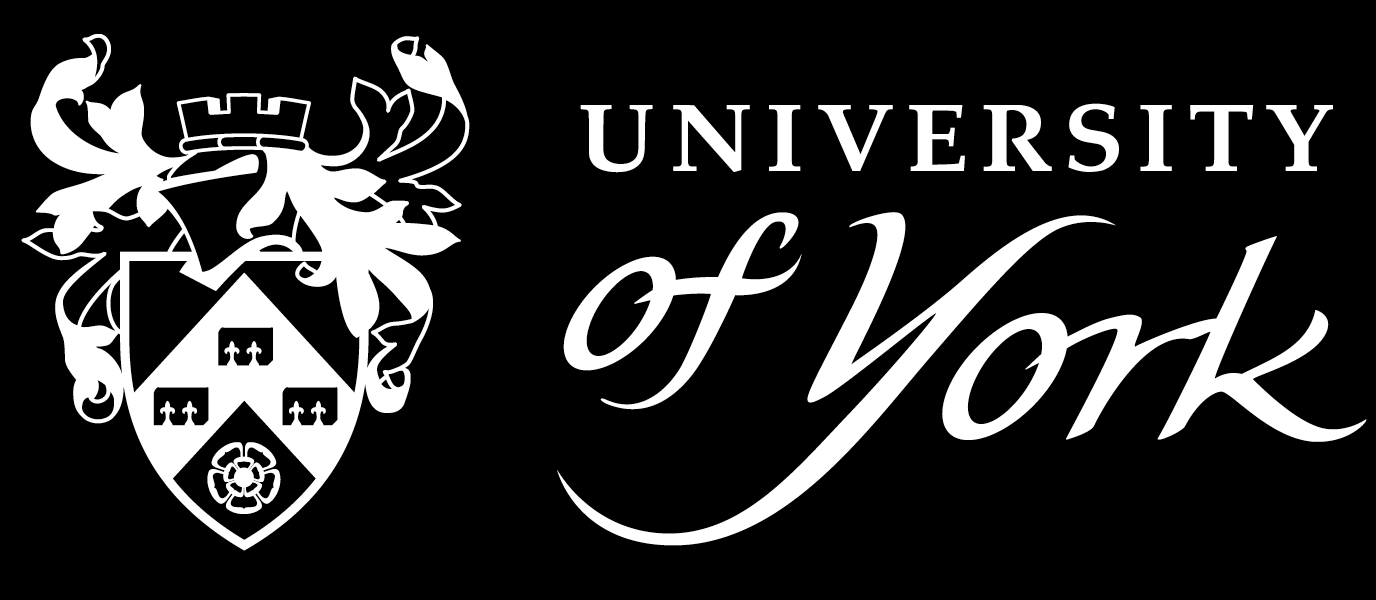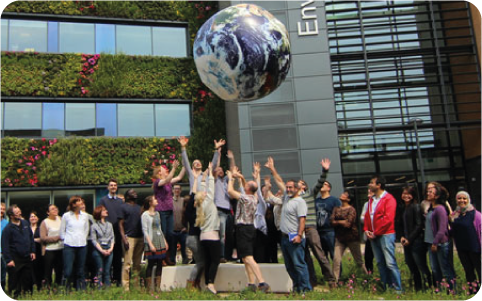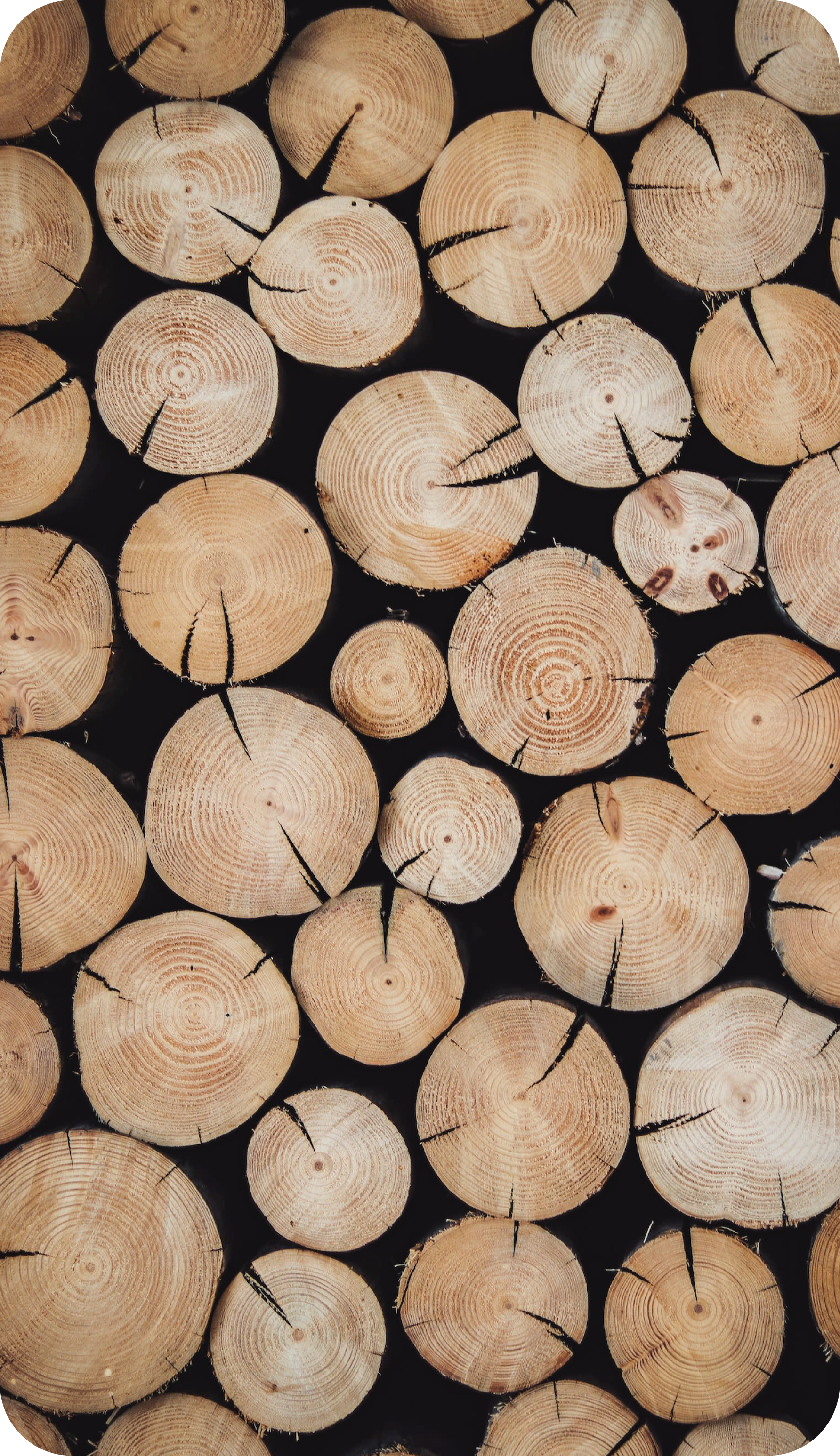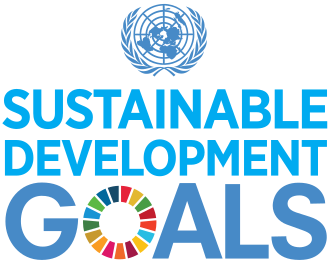SUSTAINABILITY AT YORK
ANNUAL PROGRESS REPORT 2022-2023

INTRODUCTION
This second edition of the University of York’s Sustainability Plan Annual Report details the extent to which we have been able to achieve the sustainability goals we first formally set in 2021, and it showcases our steadfast commitment to its objectives. The range of these objectives is wide – including the need to drive our carbon emissions to net zero, reduce material use and waste generation, increase biodiversity on our campuses, foster health and wellbeing through improved environmental conditions, and many more. The actions we take also nicely align with the broader Sustainable Development Goals laid out by the United Nations and foster a community that recognises its responsibility to lead by example, to harness the knowledge we generate, and to bring about tangible improvements to the places where we work, study and live.
We have begun to diversify our on-site energy production through delivery of a substantial solar panel array on Campus East. Off campus we have moved our high performance computing to an eco data centre in Sweden, and employ ever more effective advancements in research and education for positive impact on our community. Environmental Sustainability at York (ESAY) is a formidable example in this regard. Through its Sustainability Clinic, for instance, it engages students with local interests to solve local problems, delivering public good, and contributing to education and personal and professional growth of all involved.
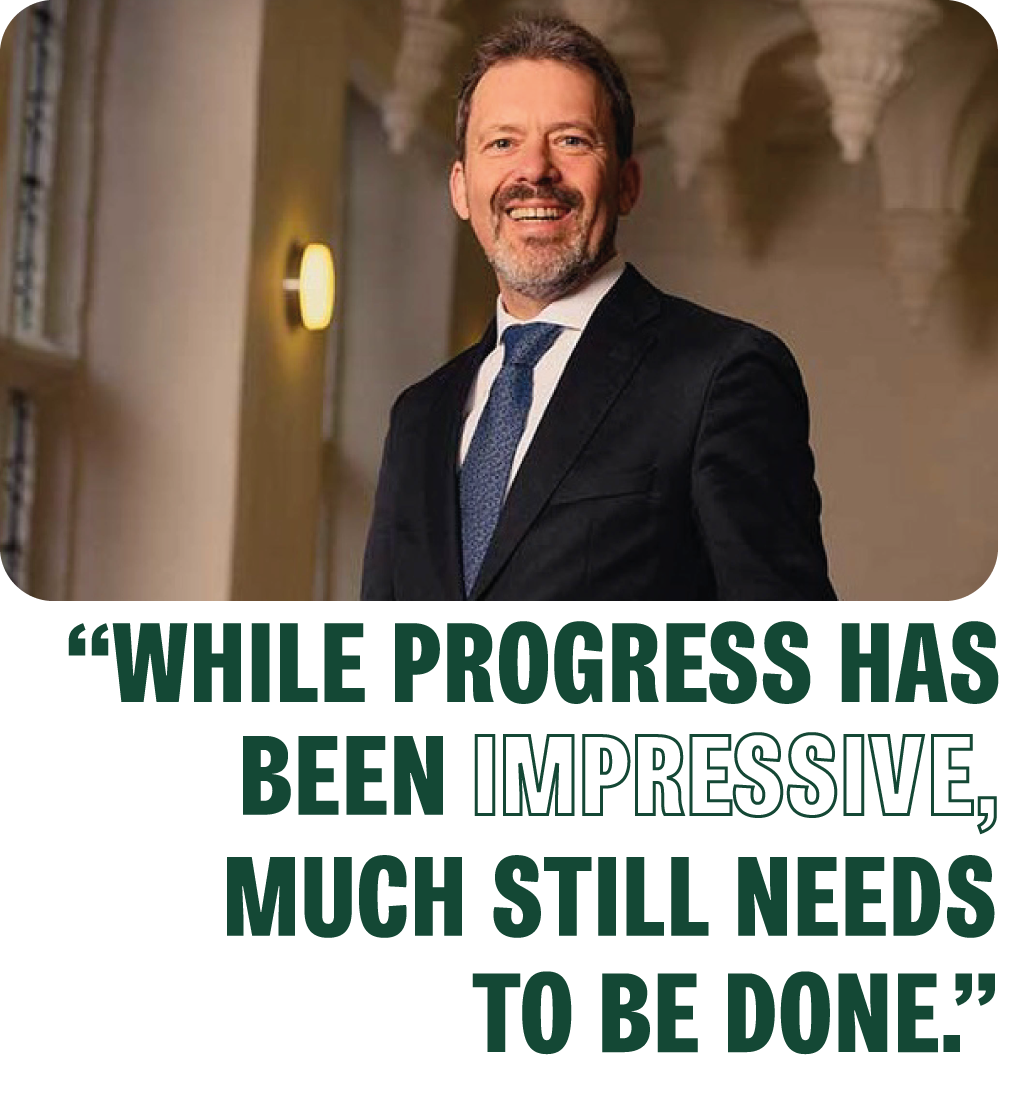
In the years to come, we will continue to promote practices that advance our sustainability goals – be those through our procurement choices, travel behaviours, laboratory operations, or office and teaching space utilisation, to name just a few.
Sustainability is an imperative for us all, and we look forward to working together to make it happen, and make it happen fast.
Professor Matthias Ruth, Pro-Vice-Chancellor for Research and Chair of University of York Sustainability Steering Group
ACHIEVEMENTS SO FAR
Prior to and including the 2022-23 academic year we have collectively achieved a number of positives in different areas of sustainability, each playing their role in edging us closer towards our net zero targets.
View our achievement highlights below.

52%
of main waste was suitably recycled in 2022-23
3130
trees planted on campus grounds in 2022-23
10%
reduction of scope 1 and 2 carbon emissions against the average 2017-19 baseline
44 tonnes
of IT equipment has been saved from landfill since 2020
15,000
meals saved from landfill since 2021 thanks to our 'Shop, Save, Sustain' scheme
10,700
members have joined the YORCUP scheme since 2019
£105,500
raised through the Latte Levy since 2019
1.5million
single-use cup reduction since the launch of YORCUP (2019)
3.36 tonnes
of carbon saved through a reduction in printing in 2022-23
16%
reduction of scope 3 carbon emissions against the average 2017-19 baseline
350+
participants engaged in Sustainability Clinic pilots in 2022-23
18.7 tonnes
of CO2e saved through power management into PC classrooms in 2022-23
38,500
global and local audience members at York Festival of Ideas in 2022-23
2 and 87
2 new carbon literacy trainers and 87 individuals certified in carbon literacy 2022-23
895 actions
completed by staff and students as part of Green Impact at York in 2022-23
AWARDS AND RECOGNITION
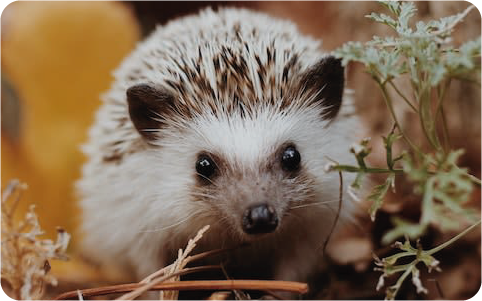
HEDGEHOG FRIENDLY
Our campus has been awarded Platinum status for being a suitable and safe place for hedgehogs to thrive. We're one of only two universities in the UK with Platinum accreditation.
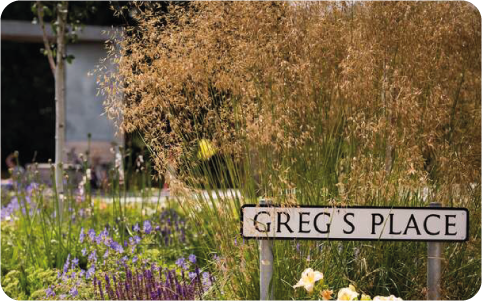
GREEN FLAG CAMPUS
The Green Flag award is the benchmark national standard for publicly accessible parks and green spaces in the United Kingdom. We've maintained our Green Flag status since 2013.
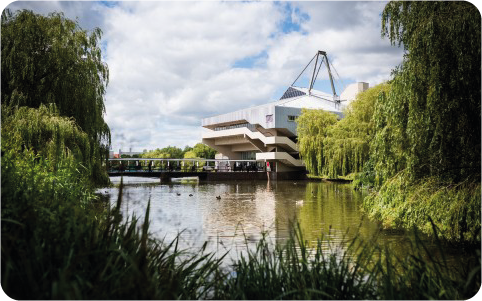
8TH IN THE UK
The University of York has been ranked the eighth most sustainable university in the UK and 36th in the world, according to the QS Sustainability Rankings 2023.

FOOD FOR LIFE
12 catering outlets have received Bronze certificates from the Soil Association for serving meals that use less, better meat, responsibly sourced fish and locally sourced ingredients.
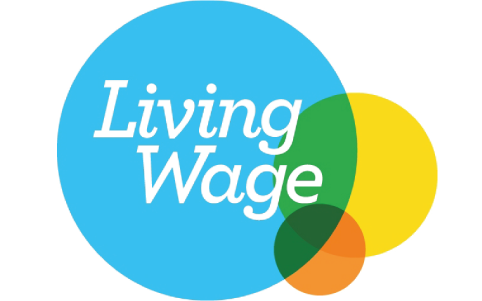
REAL LIVING WAGE
We implemented a new hourly rate above the national standard with an earlier effective date of 1 January 2023 (before the compulsory implementation date for the national standard - May 2023).
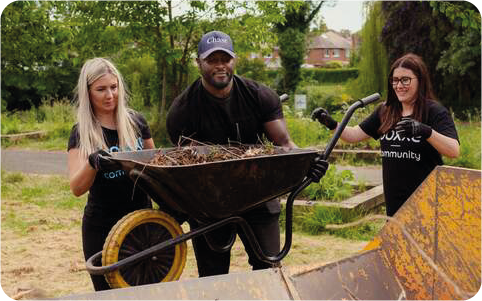
GREEN GOWN AWARD FINALIST
Our Sustainability Clinic (Category: Student Engagement) and 'Research on palm oil cultivation' (Category: Research with Impact) has been shortlisted.
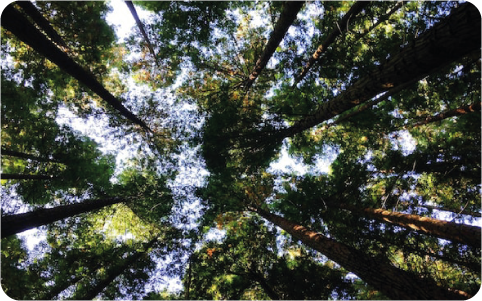
ISO 14001 CERTIFICATION
We're continuing to work with an environmental management system framework that measures and works to lessen environmental impact on the planet.
PROJECT SPOTLIGHT
INSTITUTE FOR SAFE AUTONOMY - NET ZERO PROJECT
The Institute of Safe Autonomy Net-Zero solar farm is now complete.
The solar array will not only help to diversify our on site energy production, but will form a ‘living lab’ where researchers can develop and test new robotic and AI technologies designed to inspect and maintain solar arrays.
Funded through the UK Research Partnership Investment Fund (UKRPIF), the project will enhance the Institute’s research capabilities to develop and use AI and robotic systems in renewable energy. The 113 kWp solar farm will create a ‘living lab’ to give insight to landowners and operators of solar farms on how best to integrate robotic technology in the field.
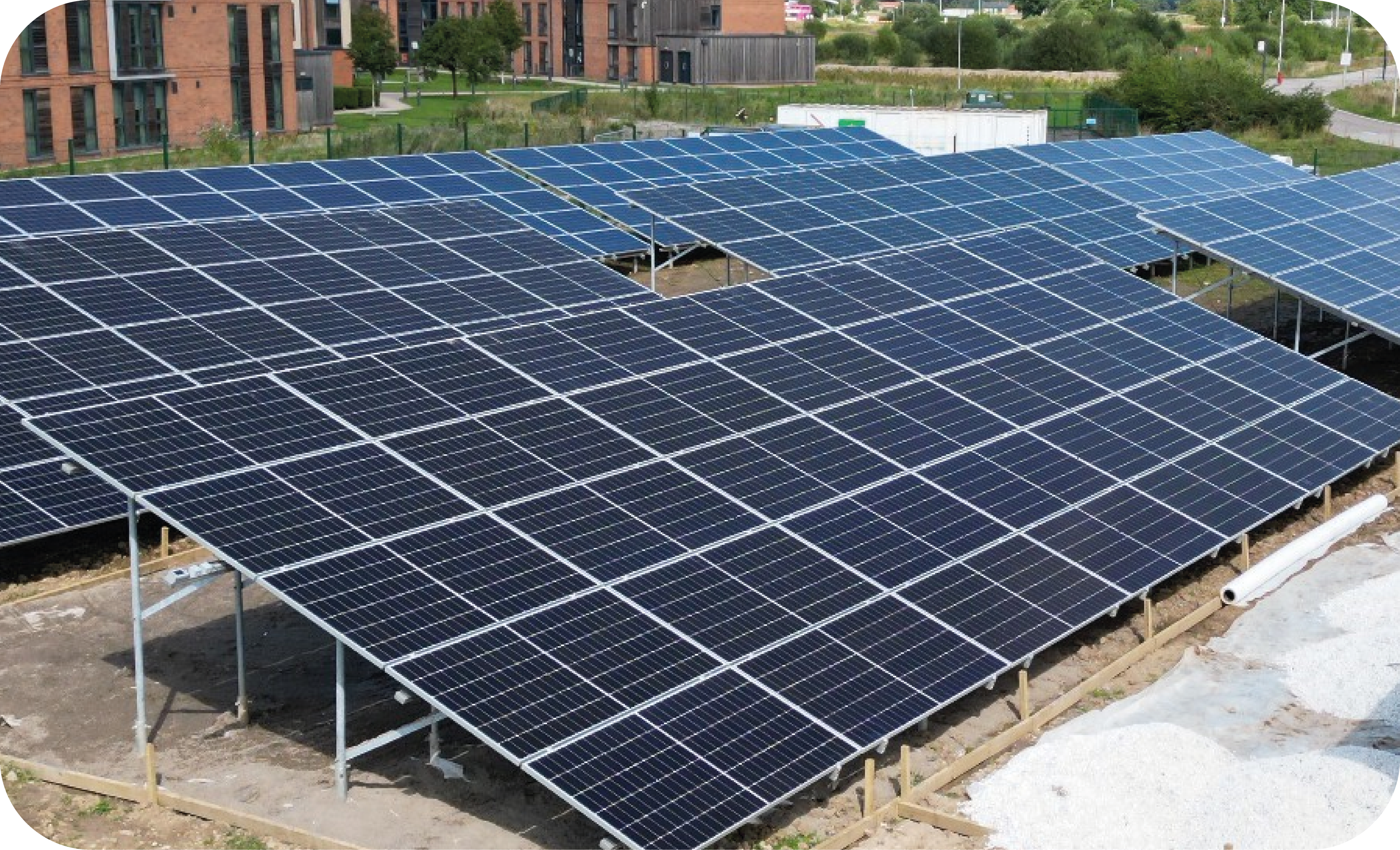
“Robotics, autonomous systems and AI have the potential to transform the way we live, travel and work in the future. Integrating them with the production of renewable energy will ultimately play a key role in the journey towards net zero.
This innovative research project marks an important milestone for the Institute and reaffirms our commitment as a university to sourcing sustainable energy."
Professor Miles Elsden, Director of the Institute for Safe Autonomy at the University of York
FROM SAWDUST TO SUPERCOMPUTING
The University of York has selected EcoDataCenter in Falun, Sweden to host our latest High Performance Computing (HPC) system on 100% renewable resources, in a data centre constructed from local wood, where the heat is re-used for district heating and wood fuel pellet production.
"Given the University’s strong commitment to net-zero, and the fact we will be doing climate research on this facility, it was extremely pleasing to find a partner so focused on environmental sustainability, and with the capability and maturity to deliver.
So much time is spent talking about sustainability, and it’s exciting to be taking positive steps, and to be leading on sustainable research computing facilities."
Richard Fuller, Assistant Director of IT at the University of York
YESI FELLOWSHIPS
York Environmental Sustainability Institute (YESI) launched its Discipline Hopping and Knowledge Exchange fellows scheme in the academic year 2022-2023. The scheme was funded by Environmental Sustainability at York (ESAY) with additional money from NERC.
Ten interdisciplinary sustainability projects were funded, with teams of fellows spanning 12 departments across all faculties. Projects engaged with local, UK and international partners.
Together these fellowship teams help to enhance capacity across the University’s research portfolio to establish and reinforce leadership in key areas of sustainability. Partnerships with external groups have contributed toward maximising opportunities for research impact for the public good, helping to establish the University of York as a go-to group for research relevant to environmental sustainability policy and practice.
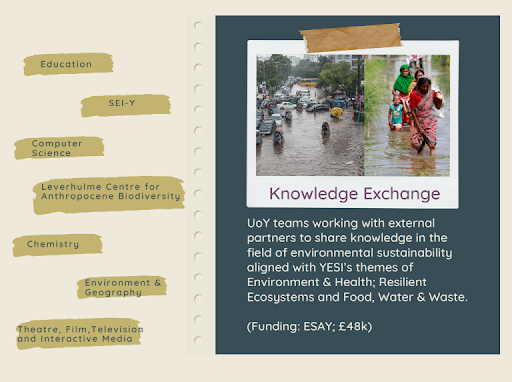
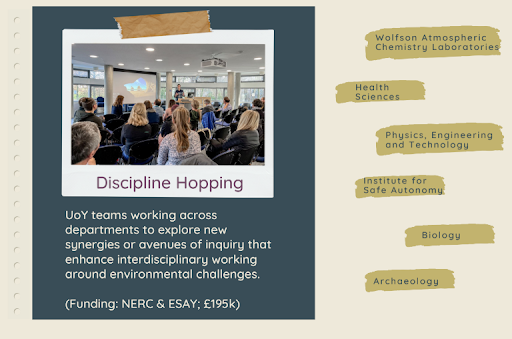
THE BIG COMMUNITY CHALLENGE
The Big Community Challenge is an annual project co-ordinated by York Cares in partnership with the City of York Council's (CYC) Environment and Communities (ECO) Team to bring employers together over a month to make a transformational change in urban green spaces in the city. This is an opportunity to come together, to be part of something BIG in the city and to make a real difference to our local environment.
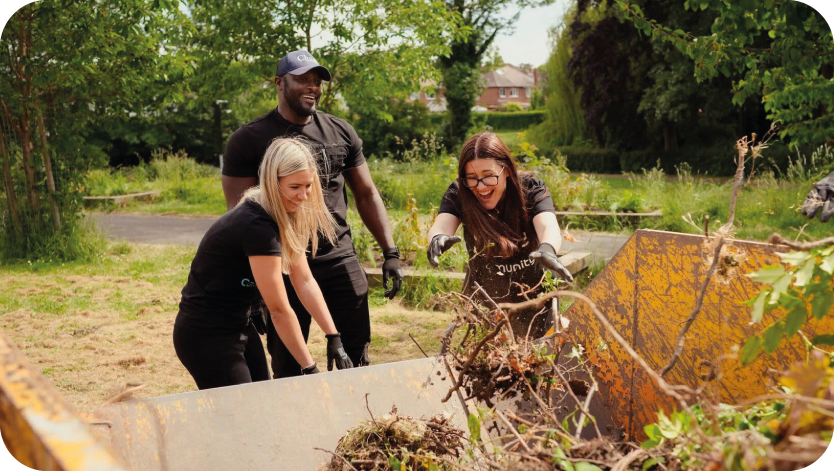
This year's Big Community Challenge, organised by York Cares, focused on the maintenance and restoration of river and wetland areas in York with the aim to preserve and improve biodiversity across the city. Running throughout June, staff and students put together more than 30 volunteer teams, backing this as part of the University’s 60th anniversary to make it the biggest community challenge yet.
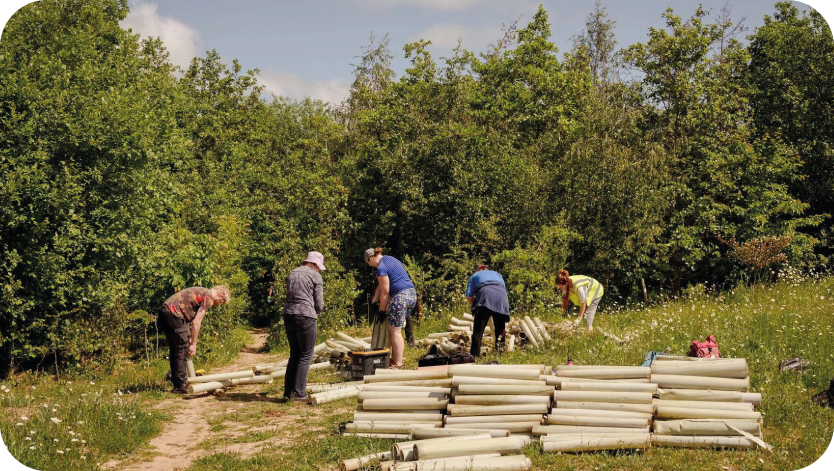
In the opening days of the challenge, teams on Campus East planted 500 tansy plants, with the long-term aim of developing a tansy habitat, and planted 500 reeds in the lake to improve biodiversity. Other volunteers removed 4,760 tree spirals on Kimberlow Hill to ensure the continued growth of the trees. Throughout the challenge, teams have also volunteered off campus, including sites in Hull Road Park, New Walk, Rowntree Park, Chapman's Pond, Westfield Marsh and along the River Foss.
In July, the University of York was awarded a Golden Moment award from York Cares in recognition of the contribution that volunteers have made to the Big Community Challenge this year.
STUDENT SUSTAINABILITY OPPORTUNITIES HUB
The Student Sustainability Opportunities Hub was launched in March 2023 to showcase sustainability-related opportunities on offer at the University of York.
Located on the University’s main website, all students can use the hub to discover sustainability related opportunities, from modules and internships to volunteering and events. So far, the hub has showcased a wide range of offerings, such as Climate Fresk workshops, new MSc programmes, York Environment Week, the Big Community Challenge, YUSU’s sustainable development grant, sustainability conferences, and more.
The hub has been designed with students in mind, and will help them to:
• Develop their sustainability skills, knowledge and experience.
• Think about a career in sustainability.
• Go beyond their degree programme with our sustainability-related York Interdisciplinary Modules (YIMs).
• Find work experience opportunities.
• Enjoy sustainability events and workshops on campus.
The hub’s news page features sustainability-related stories, including interviews with students, upcoming opportunities to look out for and recent news. It also connects students to both our social media channels and Handshake (our careers platform for students) as a way to cohere and boost existing sustainability opportunities available across the University.
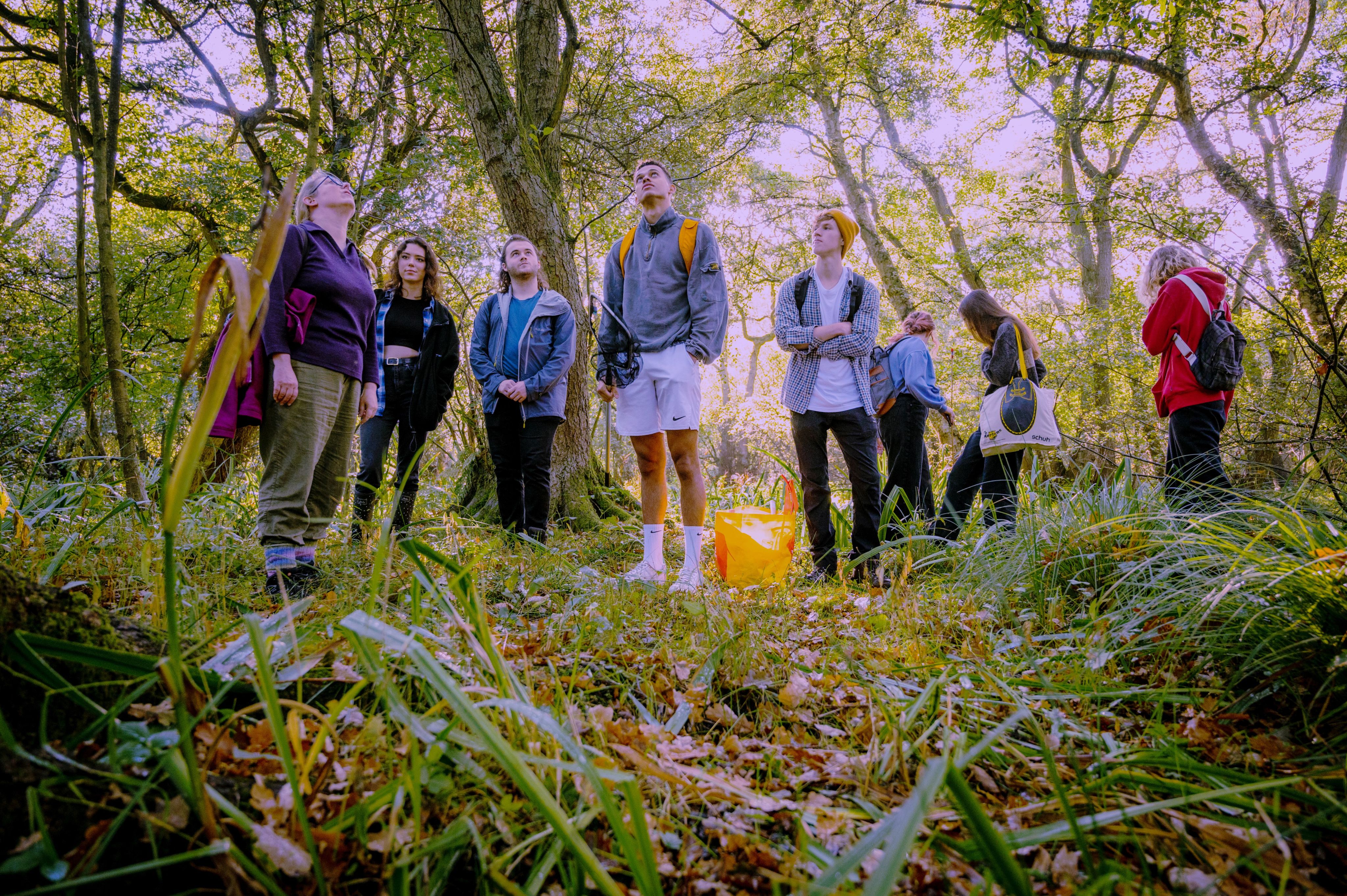
OUR PROGRESS
This section shows our progress against each of our United Nations' Sustainable Development Goal themes, commonly known as ' SDG themes’. These are goals and targets stated within our Sustainability Plan.
We also highlight some key elements and metrics which have been achieved within individual areas.
QUALITY EDUCATION
YORK INTERDISCIPLINARY MODULES (YIMS)
We recently launched four elective modules that offer students the opportunity to develop key skills and competencies in working across disciplines on contemporary challenges. The YIMS modules are led by academics from different departments to introduce different disciplinary perspectives to the specific topics of focus.
NEW COURSES
Available through through the Centre for Lifelong Learning, our 'MSc in Environmental Sustainability Education and Communication' launched in 2022-23 for postgraduate students to empower them to lead, educate and communicate on the most important environmental issues of our time.
Two non-accredited courses 'Climate Questions' and 'Climate Conversations' in collaboration with YUSU are also available through the Centre for Lifelong Learning.
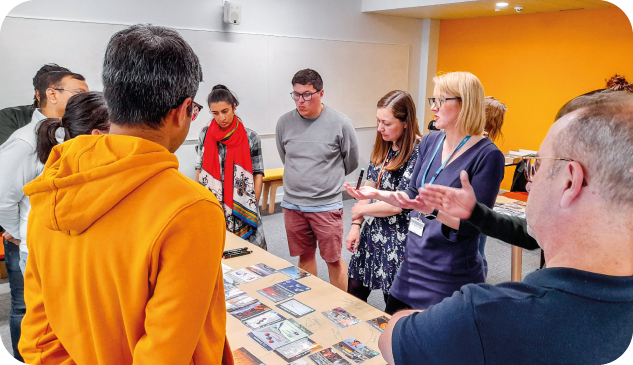
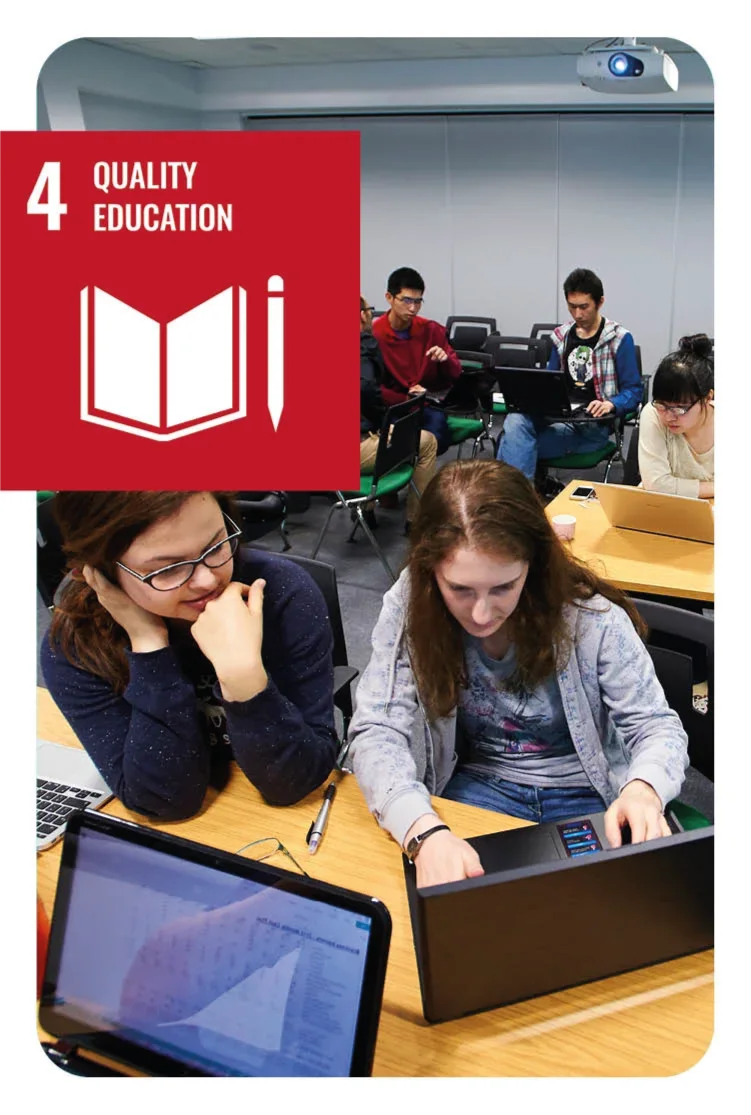
CLIMATE FRESKS
A three hour interactive workshop teaches the fundamental science behind climate change and empowers participants to take action through small group discussion, reflecting on emotions and collaborative action planning. Climate Fresk is open to all staff and students, and 15 facilitators are trained across the university.
YORK LIVING LABS
Established by Environmental Sustainability at York (ESAY) to bring together our University community to work on sustainability problems on campus, and use the campus as a test-bed for sustainability solutions which have wider impact. The lab's biodiversity management committee is made up of students, academics and support services staff.
SUSTAINABLE RESEARCH
FELLOWSHIPS
We have developed 10 sustainability projects through the inaugural interdisciplinary YESI fellowship scheme.
CODE OF PRACTICE
We are developing code of practice for Sustainable Research at the University which we expect to be in place by the end of the Spring Term 2024.
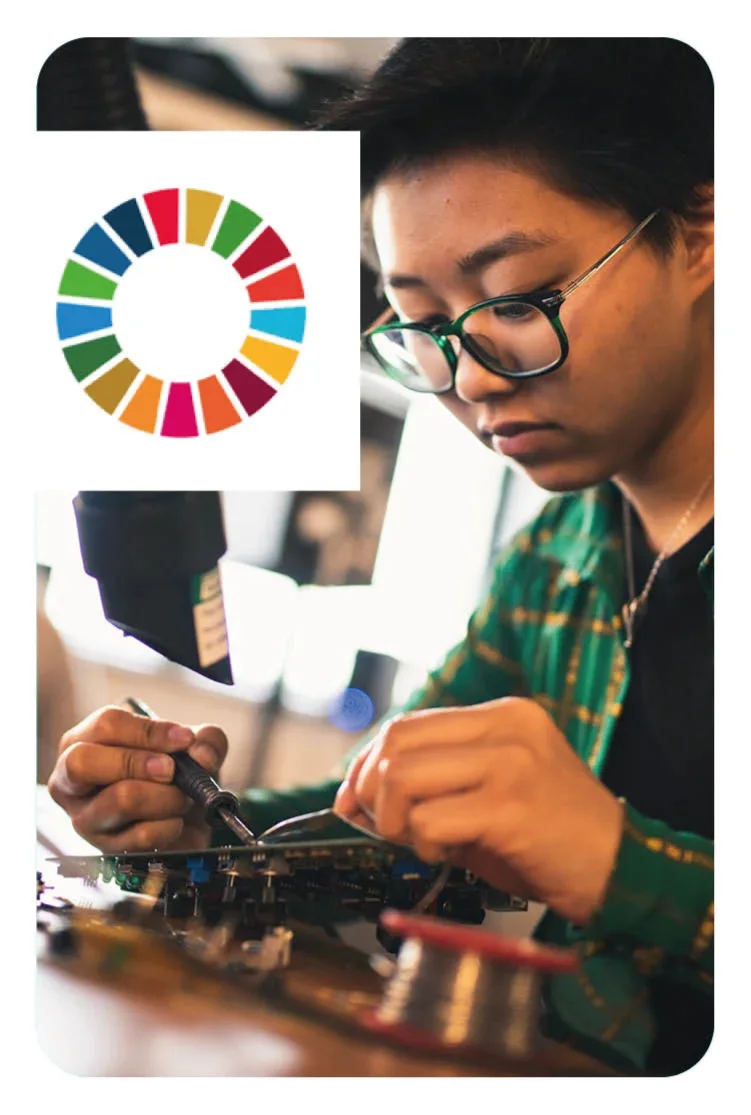
CLIMATE ACTION
CARBON FIGURES - SCOPE 1 AND 2
Our scope 1 and 2 carbon emissions generated from heat and electricity in 2022-23 was: 23,938 tonnes.
This is a 10% reduction against our 2017-19 average baseline figure, and a 4% increase on emissions generated in 2021-22.
CARBON FIGURES - SCOPE 3
Our scope 3 carbon emissions generated from off campus such as travel and supply chains in 2022-23 was: 76,557 tonnes.
This is a 16% reduction against our 2017-19 average baseline figure, and a 27% increase on emissions generated in 2020-2021.
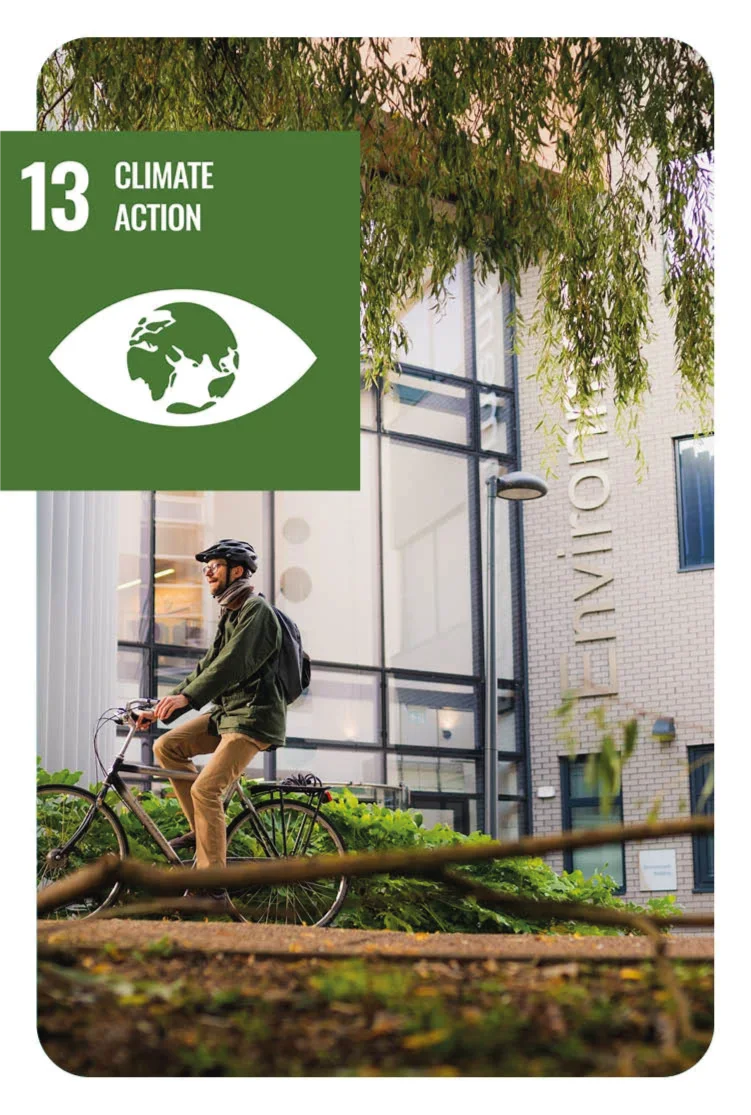
ISA NET ZERO SOLAR FARM INSTALLATION
The 113 kWp solar farm will not only help diversify our on site energy production, but also form a 'living lab' where researchers can develop and test new technologies designed to maintain solar arrays.
A NOTE ON OUR CARBON FIGURES
We have implemented a variety of initiatives to save energy which have helped to reduce our consumption of gas and electricity against the baseline measurement from 2017-2019. Our electricity usage has reduced and our gas usage has increased against 2021-22 usage.
In 2023 we opened the new Energy Centre on Campus East to ensure energy security. The Energy Centre uses an additional Combined Heat and Power (CHP) engine, generating heat and electricity by using gas. The CHP engine provides heating at the lowest possible carbon cost currently viable for the scale of heating needed, generating electricity as a byproduct.
However, the electricity we make on campus isn't as clean as the electricity that we would previously have bought from the grid. This has resulted in our carbon emissions (scope 1 emissions from owned or controlled sources) increasing.
We are developing a Decarbonisation Plan to set a pathway to reduce our emissions through the use of more renewable energy sources for on-campus electricity production.
Scope 3 emissions have increased due to increased travel, purchased goods and services after coming out of the pandemic.
CITIES & COMMUNITIES
BIG COMMUNITY CHALLENGE
In 2023, The Big Community Challenge, an annual project coordinated by York Cares, organised in partnership with City of York Council's Environment and Communities (ECO) Team, saw over 30 volunteer teams from the University of York, out doing their bit to restore river and wetlands across York.
FESTIVAL OF IDEAS
In 2023, York Festival of Ideas saw 38,500 global and local audience members, and 241 in-person and online events. 16,780 out of the 38,500 were local attendees. Some events focused on local and global food security, sustainability, climate change and biodiversity.
YORK ENVIRONMENT WEEK
To mark York Environment Week, the University hosted over 60 events over the course of seven days.
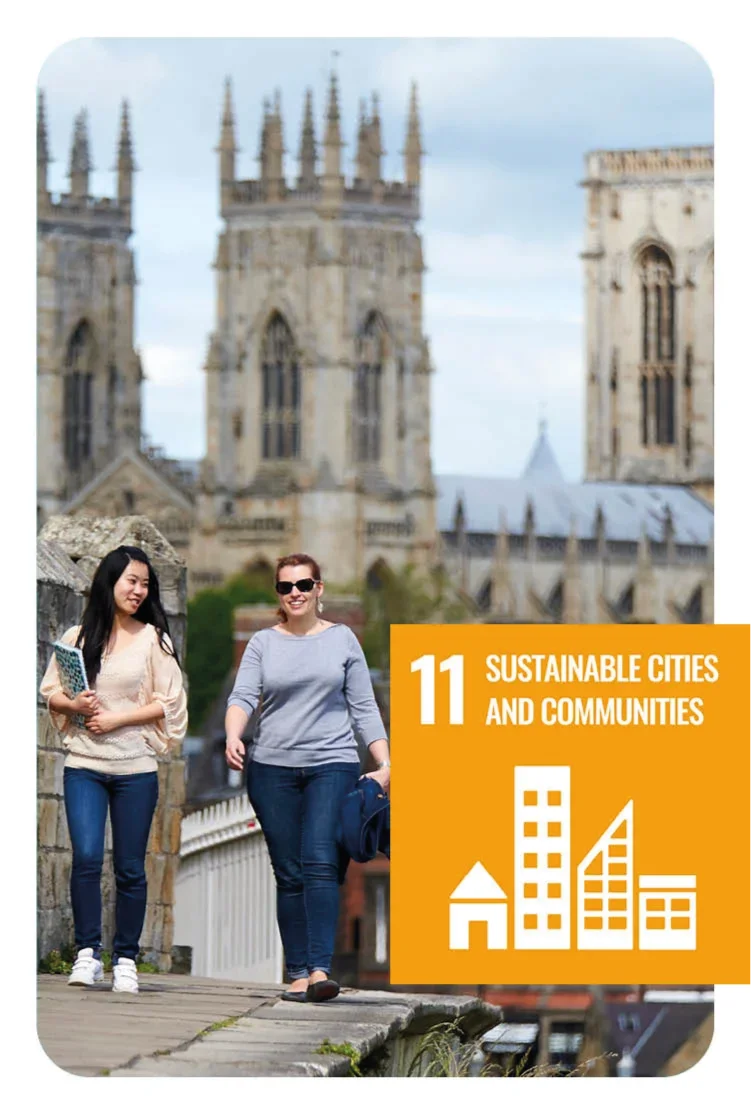
NETWORK BUILDING
We are continuing to make city connections, and build our networks through:
• ESAY's LinkedIn account
• YESI Fellowship funding 'York CliConnect'
• York Sustainability Groups
CONSUMPTION AND PRODUCTION
RECYCLING RATE
Our University recycling rate for 2022-23: 52% main waste was suitably recycled. This is a 1% reduction from the previous year 2021-22.
WASTE GENERATION
Our waste generation for 2022-23 is 1,871 tonnes - an 8% reduction on 2018/19 baseline, and a 5% increase on 2021-22.
SUPPLIER ENGAGEMENT
University-led tenders mandate that suppliers implement a real living wage. The University will be including the Sustain Supply Chain Code of Conduct in all future standard University-led tenders for contractors to comply with.
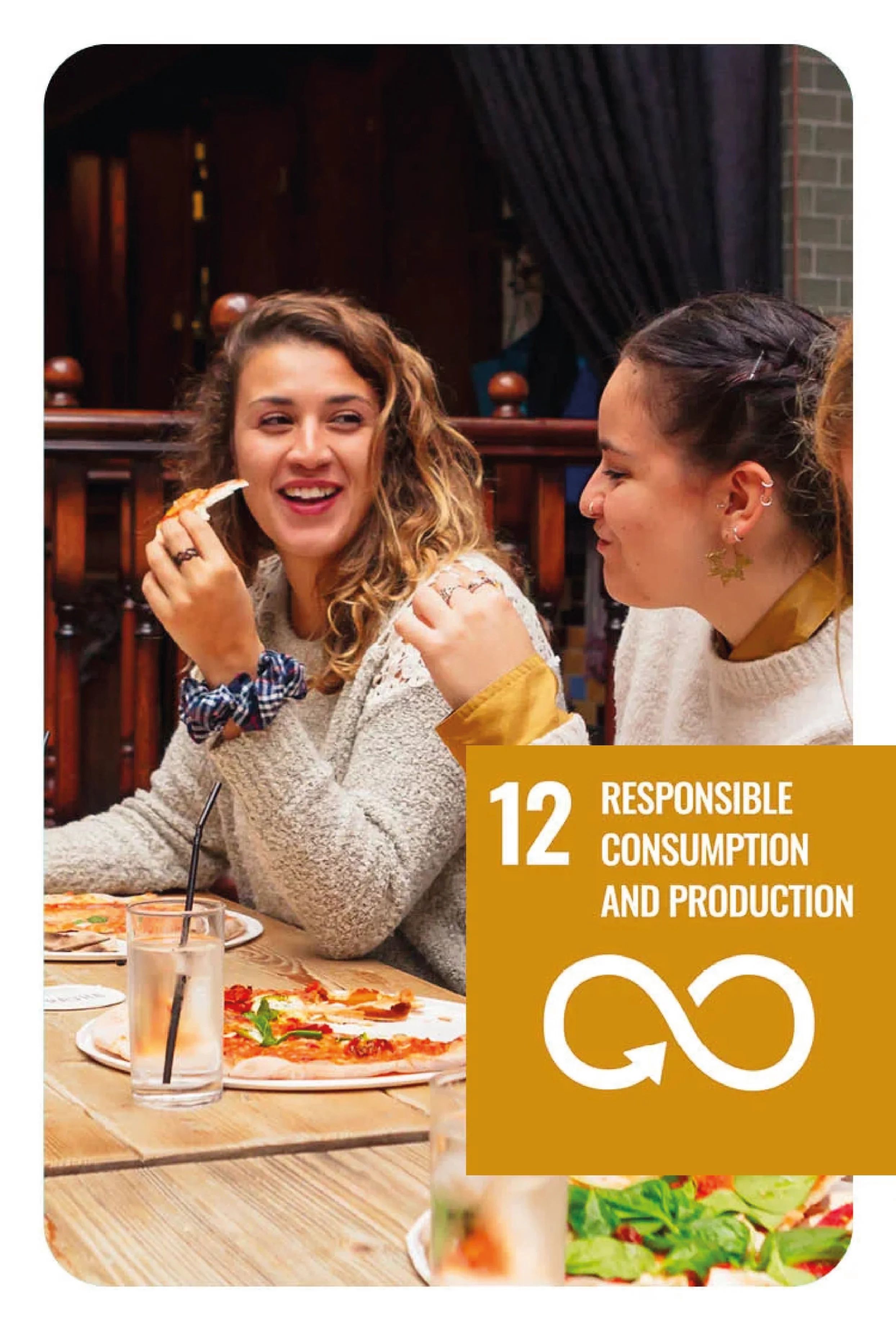
INVESTMENT
Some of our funds raised from the Latte Levy scheme have been able to financially support the YUSU Sustainability Grant - making students' sustainability ideas a reality.
HEALTH & WELLBEING
WELLNESS WEDNESDAY
We offered students free access to York Sport gyms (both York Sport Centre on Campus West and York Sport Village on Campus East) on Wednesday 11 October 2023. The session gave students the opportunity to meet the fitness team and find out more about how to get started on their fitness goals.
LONGBOI BOIOLOGY ART TRAIL
In 2023, the University of York lost one of its most famous alumni: Long Boi, a tall duck who was much loved by staff and students on campus and far beyond. The Long Boi art trail, created by the Department of Biology in collaboration with the Biology Research Workshops (and with thanks to the University Estates Team), celebrates the longest duck on the lake and the outstanding research and education that goes on in the Department. Long duck silhouettes decorated by staff and students highlight our key themes of Better Health, Green Futures and an Education that Empowers.
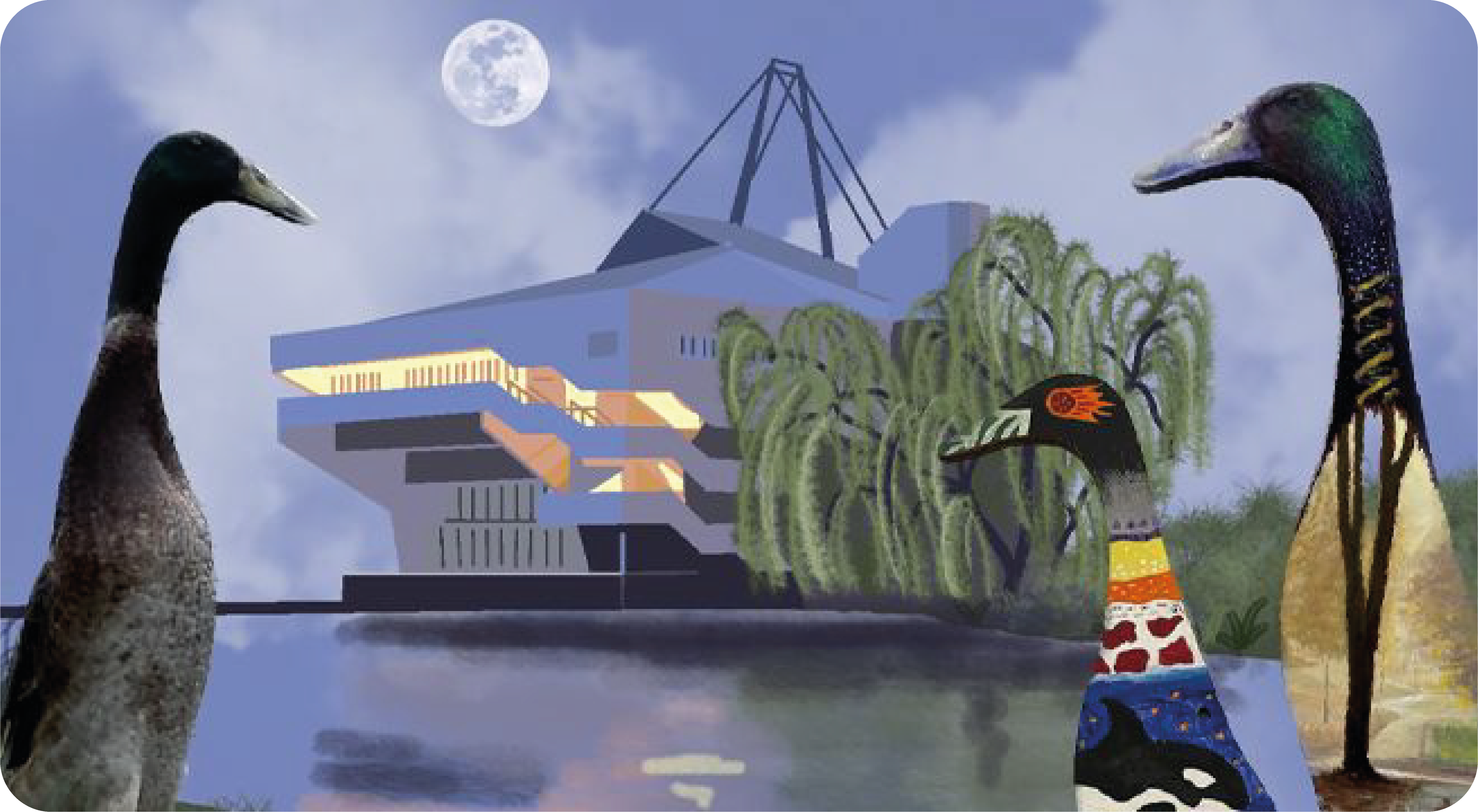
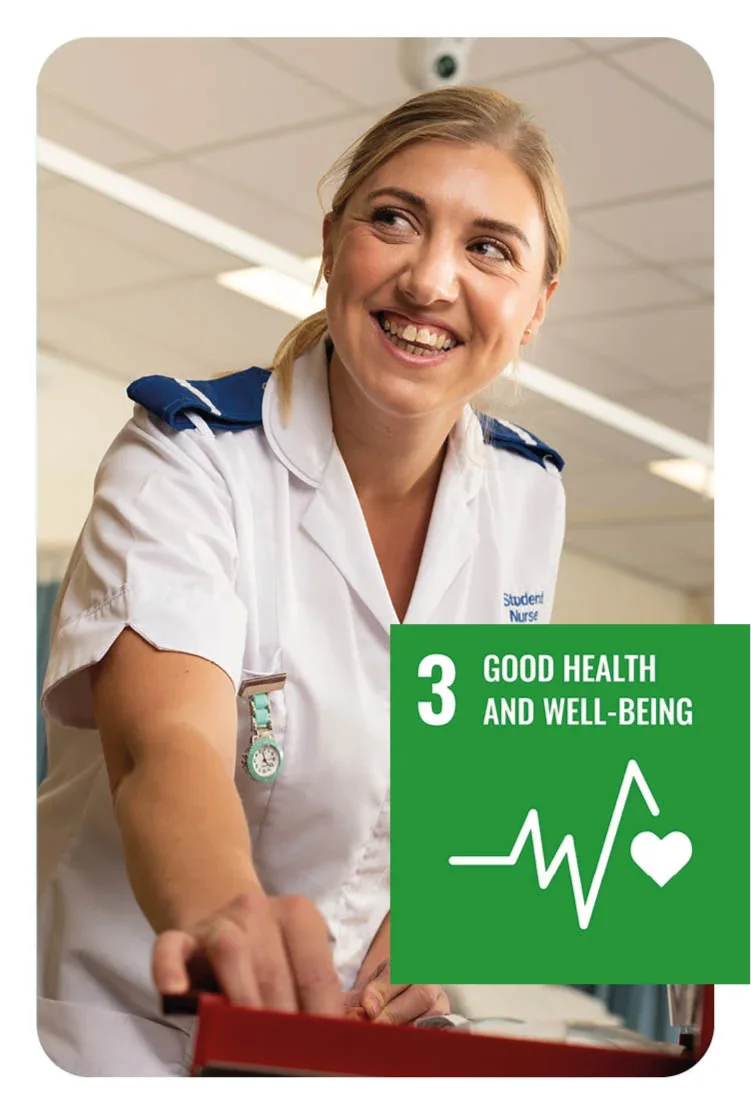
LIVING WAGE
Accredited as a real Living Wage employer, we are committed to ensuring that everyone working at the University of York, and our subsidiary companies, receives the real Living Wage. On 1 January 2023, we applied a new minimum hourly rate above the national standard with an earlier effective date than required.
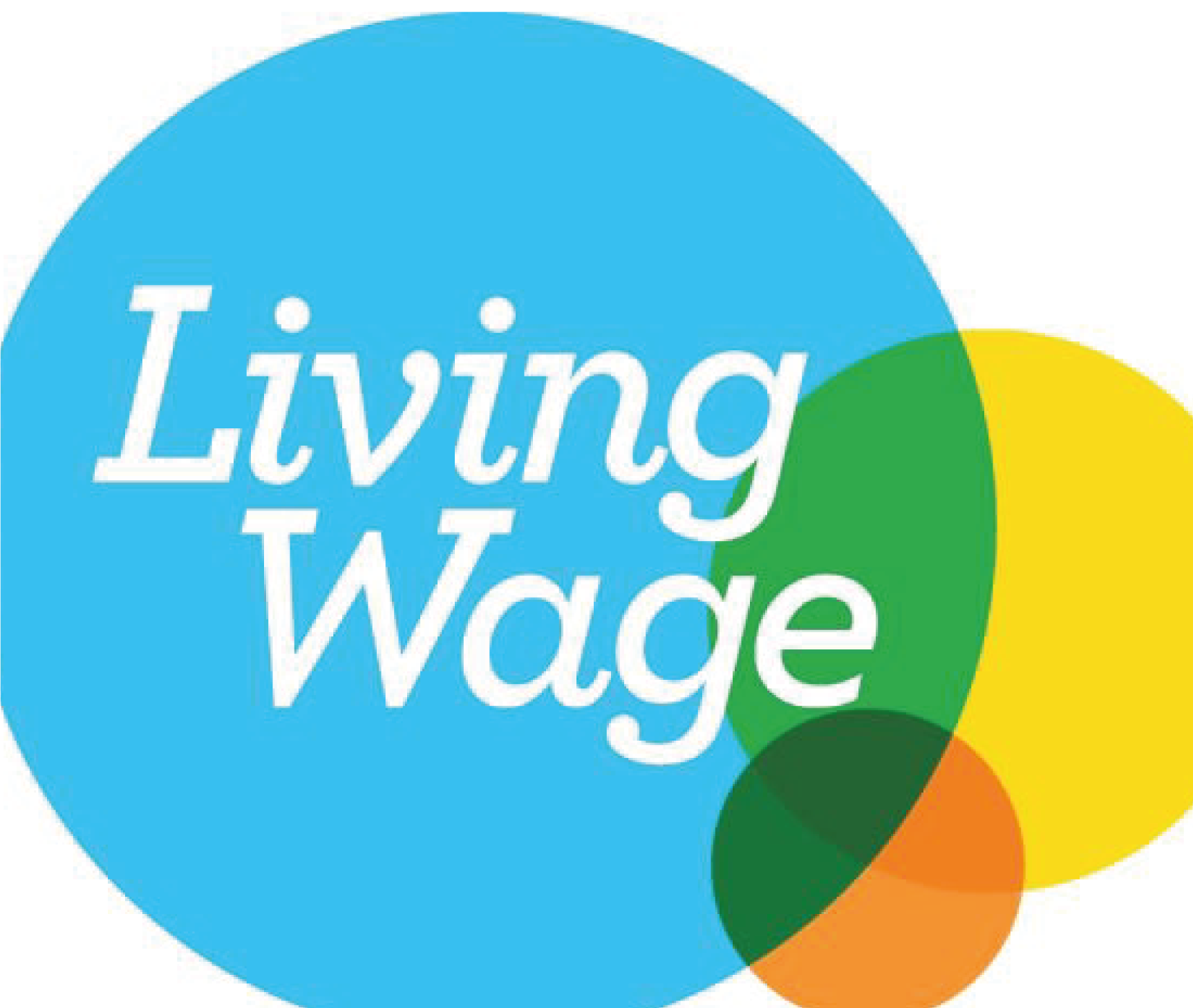
PROGRESS TRACKER
We've tracked our 2022-23 progress against each of our Sustainable Development Goals (SDGs).
See the Tracker Key below to find out what each of the ratings mean.
TRACKER KEY
Not started: Some work has been done in these areas, however a formal process or mechanism has not yet been established for achieving the target.
Advancing: A formal process or mechanism has been initiated, but more focused works are required to progress.
On track: A formal process or mechanism has been implemented, and works are progressing to achieve the target.
Achieved: Works are complete and the target has been achieved.
GOAL: QUALITY EDUCATION
1. DELIVER A SUITE OF WIDE-RANGING PROGRAMMES OF LEARNING THAT PROVIDE NECESSARY COMPETENCIES AND EMPOWER STUDENTS TO MAKE A POSITIVE IMPACT ON SUSTAINABILITY.
Target 1a: Implement a suite of training packages, ranging from mandatory training to areas of interest and specialism. Providing tailored levelling up of training provisions resulting in personal certification, ranging from induction training, to overarching carbon literacy, to faculty or department specific packages.
Rating: On track
Target 1b: Establish a range of courses (eg mini-masters) and modules focusing on University of York’s areas of strength in sustainability, incorporating the 'skills for a sustainable future' and 'transformative competencies'.
Rating: On track
Target 1c. Develop a brokerage of local and University based research projects to support students to undertake dissertations or projects that both enhance sustainability and meet community needs.
Rating: On track
2. PROVIDE ENGAGING AND FOCUSED OPPORTUNITIES OUTSIDE OF TEACHING TO EQUIP STUDENTS WITH PRACTICAL KNOWLEDGE AND EXPERIENCE OF EFFECTIVE SUSTAINABILITY ACTIONS.
Target 2a: Create a suite of key focused initiatives (with collaboration from University of York Students’ Union and University of York Graduate Students’ Association) that students can actively participate in outside of their formal academic activities that increase their awareness of sustainability and enhances their employability.
Rating: On track
Target 2b: Increase the availability and accessibility of key non-academic sustainability initiatives to students.
Rating: On track
Target 2c: Learning by sustainable living - development of accommodation blocks dedicated to practising and developing more sustainable lifestyles.
Rating: Advancing
3. LEAD OUR STUDENTS BY EXAMPLE THROUGH ENVIRONMENTALLY SUSTAINABLE TEACHING OPERATIONS.
Target 3a: Provide departments with accountability for implementation of clearly demonstrable sustainability improvements in teaching operations (while still ensuring inclusivity and accessibility), including travel, paper and other resource usage.
Rating: Advancing
Target 3b: Where practical (with consideration of pedagogy, inclusivity and accessibility) move to online digitised processing of assessments including student submission, marking, feedback, marks administration and exams.
Rating: Advancing
SUSTAINABLE RESEARCH
4. CREATION OF A NEW ENTITY THAT ACTS AS A FLAGSHIP FOR GLOBALLY-RECOGNISED RESEARCH AND TEACHING ON ENVIRONMENTAL SUSTAINABILITY.
Target 4a: Establish a new sustainability entity
Rating: Achieved
Target 4b: Code of practice for sustainable research fully implemented, with key performance indicators developed and demonstrating a reduced environmental burden of research activity to complement carbon and broader sustainability targets of the University strategy.
Rating: On track
Target 4c: Enhance research capacity across the University's research portfolio to establish and reinforce global leadership in key areas of environmental sustainability.
Rating: Advancing
Target 4d: Develop transformational competencies to maximise opportunities for our research on environmental sustainability to make an impact for the public good.
Rating: Advancing
Target 4e: Develop innovative ways of research practice and funding to establish York as an internationally renowned 'go-to' resource for research of relevance for policy and practice on environmental sustainability.
Rating: Advancing
CLIMATE ACTION
5. MINIMISE THE IMPACT THAT UNIVERSITY OPERATIONS HAVE ON CLIMATE CHANGE BY BECOMING CARBON NEUTRAL IN ALL ACTIVITIES.
Target 5a: Carbon net-zero for Scope 1 and 2 carbon emissions by 2030.
Rating: Advancing
Target 5b: Reduce indirect (Scope 3) carbon emissions by 30% by 2030 against 2017-19 average baseline data.
Rating: Advancing
Target 5c: Carbon net-zero for direct and indirect (Scope 1, 2 and 3) carbon emissions by 2050.
Rating: Advancing
6. CREATE A CAMPUS ESTATE THAT IS LEAN AND AGILE TO EFFECTIVELY ADAPT TO CLIMATE CHANGE, ADDRESSING THE RISKS AND OPPORTUNITIES IT WILL PRESENT TO THE UNIVERSITY.
Target 6a: Creation of a Climate Change Adaptation plan to feed into existing policies and processes.
Rating: Not started
Target 6b: Implement technical climate change considerations into University building and campus grounds design standards, to reduce negative impacts and realise opportunities resulting from climate change for estate operations and student experience.
Rating: Advancing
Target 6c: Implement strategic climate change considerations into Campus for the Future and space usage policies to deliver an estate that is sufficiently agile to react to the future changes in climatic conditions, preventing them from negatively affecting facilities for delivering teaching and research services.
Rating: Not started
Target 6d: Implement climate change considerations into continuity planning to address operational interruptions caused by climate change impacts.
Rating: Advancing
7. BE A LEADING EXAMPLE FOR ECOLOGICAL MANAGEMENT, DEMONSTRABLY IMPROVING BIODIVERSITY ON CAMPUS AND IN THE LOCAL REGION FOR THE BENEFIT OF NATURE, CAMPUS USERS AND THE LOCAL COMMUNITY.
Target 7a: Carry out a broad spectrum ecological survey of the campus (east and west).
Rating: Achieved
Target 7b: Identify, set and achieve a biodiversity net gain improvement target based on a baseline (identified through initial ecological survey).
Rating: On track
Target 7c: Identify and purchase a suitable piece of land off campus locally upon which to begin planting a new managed woodland of up to 50,000 trees, to complement the Northern Forest initiative.
Rating: Advancing
SUSTAINABLE CITIES AND COMMUNITIES
8. TO BE INSTRUMENTAL IN THE DEVELOPMENT OF STRUCTURED COLLABORATION AND EMPOWERING PROCESSES AND ALLIANCES WITHOUT OUR CITY AND COMMUNITY TO ACHIEVE CLIMATE NEUTRALITY FOR THE REGION.
Target 8a: Map the key interactions and interplay of the targets we share with our strategic partners to support achievement of carbon neutrality for the region by 2030.
Rating: On track
Target 8b: To identify and understand issues related to the development of low carbon pathway in our community and to focus our research firepower and institutional professional service expertise on exemplar challenge tasks to resolve them.
Rating: Advancing
Target 8c: Implement a series of shared community action plans to engage and facilitate community Climate Actions.
Rating: On track
9. IDENTIFY, EMPOWER AND FACILITATE DEVELOPMENT OF AMBITIOUS SUSTAINABLE SOLUTIONS TO CIVIC-BUSINESS AND COMMUNITY-LED CHALLENGES.
Target 9a: To align with the Civic Mission ‘social action’ workstream in development of policy and guidelines for academic and professional service staff to actively engage with community-led volunteering opportunities.
Rating: On track
Target 9b: Develop and showcase circular economy trials and example initiatives.
Rating: Advancing
Target 9c: To develop integrated partnerships with education providers to position York as a Learning City that encourages sustainability knowledge and actions for all potential learners, re-learners and graduates, providing opportunities for communications, and shared public engagement, across diverse audiences.
Rating: On track
10. IDENTIFY, EMPOWER AND FACILITATE DEVELOPMENT OF AMBITIOUS SUSTAINABLE SOLUTIONS TO CIVIC-BUSINESS AND COMMUNITY-LED CHALLENGES.
Target 10a: Creation of a formal plan detailing areas/facilities and digital spaces that are accessible and available to the wider community, increasing their use year on year, ensuring that all key University public engagement events, and communications channels are used to disseminate to and engage diverse audiences.
Rating: Not started
Target 10b: Increase access (wider and better) to cultural assets owned by the University and enhance opportunities for continued partnership programming, commissioning and curation of student/community art, with widespread programming, dissemination and promotion support through the York Festival of Ideas.
Rating: On track
Target 10c: Match the future development and promotion of the University's cultural, sports and leisure offer to complement wider city provision and to ensure that university public engagement programming and strategic engagement offer collaborative opportunities for co-curation, co-design and co-delivery.
Rating: Not started
CONSUMPTION AND PRODUCTION
11. ENSURE THAT OUR UNIVERSITY INVESTMENTS GENERATE A POSITIVE SUSTAINABILITY IMPACT.
Target 11a: Invest 50% of endowment investments (in terms of value) through impact investment.
Rating: Advancing
Target 11b: Establish an internal sustainable investment fund for sustainability.
Rating: Advancing
Target 11c: Operate and grow (by tenfold) an internal self sufficient investment fund for sustainability.
Rating: Advancing
12. PROACTIVE MONITORING OF SUSTAINABILITY FOR ALL KEY SUPPLIERS, AND WORKING WITH THEM TO IMPROVE THEIR SUSTAINABILITY.
Target 12a: Identify the most significant 100 suppliers (by value/impacts/volume) and undertake a formal baseline sustainability assessment of them.
Rating: On track
Target 12b: Undertaking annual reviews on most significant 100 suppliers (by value/impacts/volume) to ensure that they are improving their sustainable performance.
Rating: Advancing
Target 12c: Ensuring all service suppliers implement a real living wage.
Rating: On track
13. BECOME A NATURAL RESOURCE EFFICIENT UNIVERSITY, MINIMISING THE AMOUNT WE CONSUME WHILE REDUCING THE IMPACT OF OUR WASTE CREATION.
Target 13a: Reduce waste volumes from campus by 33% (by weight). [10% reduction by 2025]
Rating: Advancing
Target 13b: Increase waste recycling rates to 80% by weight [70% recycling by 2025].
Rating: Advancing
Target 13c: Increase water consumption efficiency to provide a 25% reduction per FTE staff and student against baseline usage (average of 2017-18 and 2018-19 usage figures).
Rating: Advancing
HEALTH AND WELLBEING
14. WORKING TOGETHER AS A WHOLE UNIVERSITY COMMUNITY TO DELIVER THE AIMS OF THE STUDENT MENTAL HEALTH AND WELLBEING STRATEGY.
Target 14a: Deliver a Student Wellbeing Programme throughout the academic year, focusing on times of higher risk in the student journey and delivering a range of responses.
Rating: Achieved
Target 14b: Embed the Student Wellbeing Officer roles within departments, and develop this role to provide support (to both staff and students) with student welfare and wellbeing needs.
Rating: Achieved
15. OFFER NEW, ACCESSIBLE APPROACHES TO HEALTH AND WELLBEING FOR STAFF IN THE WORKPLACE.
Target 15a: Incorporate health and wellbeing activities and provisions into departmental staff events.
Rating: On track
Target 15b: Provide an enhanced range of staff mental health training and enhance the Mental Health First Contact network.
Rating: On track
Target 15c: Accreditation with the real Living Wage Foundation and a range of improvements to the pension provision for the lowest paid staff.
Rating: Achieved
Target 15d: Strike an improved work life balance for staff through expansion of relevant policies.
Rating: On track
16. PROVIDE A CAMPUS ESTATE THAT SUPPORTS THE MENTAL AND PHYSICAL WELLBEING OF ITS USERS BY RECOGNISING THE TANGIBLE BENEFITS OF THE BUILT AND NATURAL ENVIRONMENT AND OUTDOOR ACTIVITY.
Target 16a: Actively develop the campus grounds as a tool to boost Health and Wellbeing activity.
Rating: On track
Target 16b: Formally incorporate health and wellbeing of occupants into the design considerations of future building projects.
Rating: Advancing
Target 16c: Provide access to sporting facilities for a range of sporting abilities to engage with, in order to promote the impact of physical activity, sport and wellbeing within an ‘active campus’.
Rating: On track
GET INVOLVED
We all have a role to play in reducing our impact and creating a sustainable University. Collectively all of our small steps add up to significant change.
During the 2023-24 academic year there will be even more opportunity for all University staff, students and stakeholders to get involved as we develop a brand new Sustainability Engagement Plan. The plan will coordinate and increase the ways in which you can get involved - through action, feedback and awareness.
Here are 10 practical ways you can support sustainability at York:
1. Become an active member of a Green Impact Team
2. Undertake Carbon Literacy Training - email sustainability@york.ac.uk for upcoming dates
3. Attend Climate Fresk workshops
4. Participate in Student Switch Off (students living in on-campus accommodation only)
5. Ensure that sustainable options are prioritised as part of any change in your work activities
6. Tell us about projects you're working on to improve sustainability in your specific areas of work by emailing: sustainability@york.ac.uk
7. Increase usage of sustainable transport methods (where possible) instead of taking the car to commute to work
8. Sign up to and utilise the equipment reuse schemes WarpIt and UniGreenScheme
9. Sign up to the sustainability newsletter by emailing sustainability@york.ac.uk
10. Generally be an advocate and champion for sustainability in your work area
Sustainability@york.ac.uk
york.ac.uk/sustainability
Follow us on social media: X (formerly known as Twitter), Facebook, Instagram.
